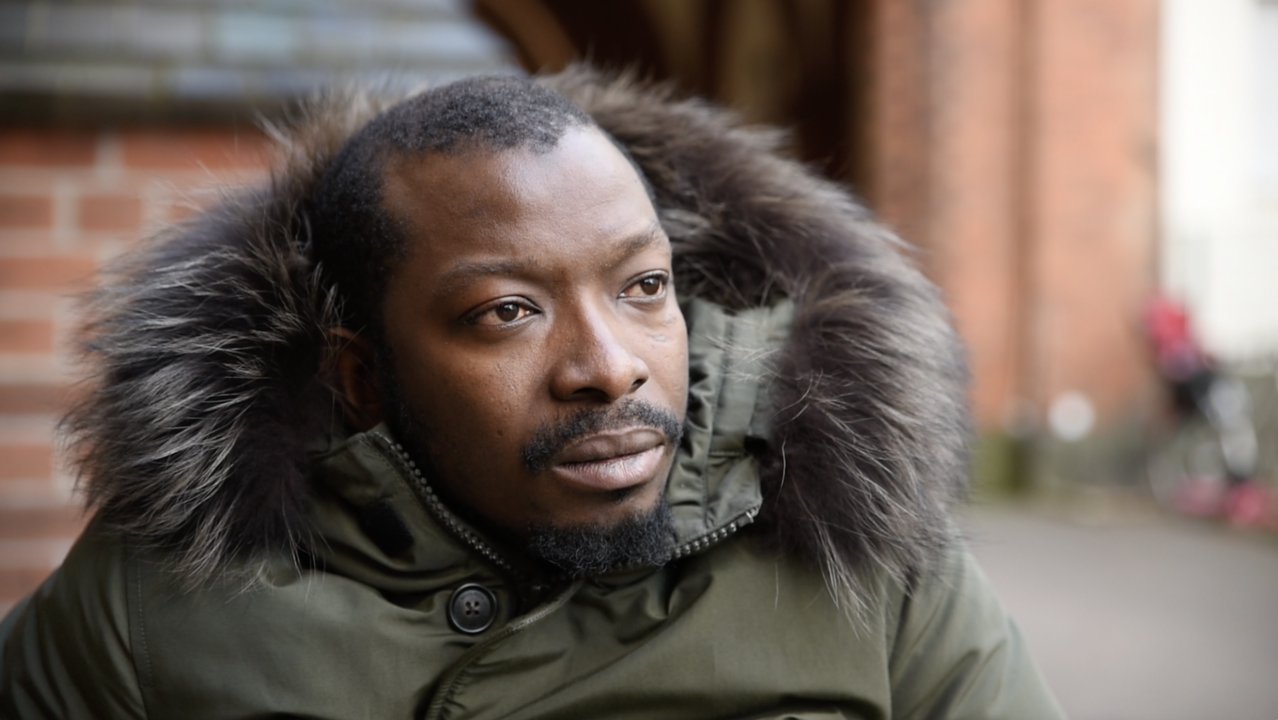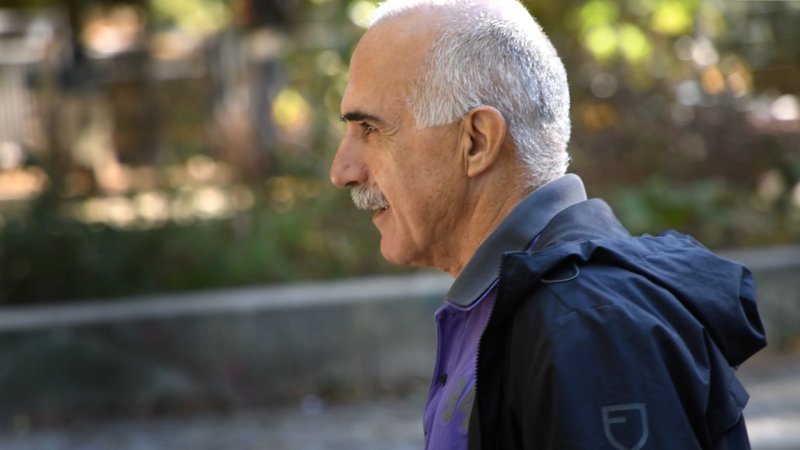Tolerated Stay (“Duldung”)

Who can get a “Duldung”?
According to § 60a Asylum Act, Tolerated Stay Permit ("Duldung") is issued for individuals who are, in principle, obliged to leave the country, but their departure is temporarily not feasible. Departure would not be possible, for instance, due to obstacles to deportation or other reasons which necessitate the continuation of the person’s presence in Germany. Deportation obstacles may include, for instance, a severe illness or the lack of identification papers.
In addition to the tolerated stay under Section 60a of the Residence Act, there is also the "tolerated stay for people with ‘unclear identity’" under Section 60b of the Residence Act. This is also known as "Duldung Light."
There are also special types of toleration, such as “Ausbildungsduldung” or “Beschäftigungsduldung”. These types of “Duldung”, along with residence permits such as “Chancen-Aufenthaltsrecht”, can temporarily grant you secure residence in Germany. Learn more at handbookgermany.de under "Right of Residence for People with ‘Duldung’."
What do I need to know?
A Tolerated Stay Permit or "Duldung" is not an actual residence permit, but rather a temporary suspension of deportation, because due to practical or legal grounds, deportation is not possible. A tolerated stay permit or “Duldung” is usually valid only for a few weeks or months.
However, it can be extended regularly– this applies if the reasons preventing deportation continue to exist.
You can find out about your prospects of staying with a “Duldung” at handbookgermany.de.
In principle, you have to leave Germany when your application for asylum is rejected. Same applies to you if you have entered Germany without a visa or residence permit and have not applied for asylum. You will then receive a “Duldung” and will be deemed obliged to leave the country.
A “Duldung” will be issued if your deportation is currently not possible for legal or factual reasons. This can occur for various reasons and depends on the individual case.
Reasons for temporarily suspending your deportation could include:
There is an obstacle to deportation, i.e. your deportation is not feasible due to legal or practical reasons. This is the case, for instance, when your home country does not allow your return due to the lack of papers. Or when you are unable to travel due to your health conditions, or there are no flight connections to your home country. Or if deportation would result in your family being separated in an unacceptable manner.
You should stay in Germany for important humanitarian or personal reasons. This can be the case, for instance, when you are about to graduate from school, need to complete medical treatments, care for a sick family member in Germany, or take part in pre-vocational courses or study in a university.
You can find out about your prospects of staying with a “Duldung” at handbookgermany.de.
If you are not issued a “Duldung”, you can seek legal advice or consult a counselling centre.
You can find counselling centres nearby by using the BAMF navigation system. Enter your postal code or the name of your place of residence and select " Asylverfahrensberatung " as the type of counselling centre. You can also use the services offered by MBE and JMD. You can also search for a counseling center in your federal state at proasyl.de. A refugee council can also offer support. You can find the refugee council responsible for you at fluechtlingsrat.de.
Freedom of movement is restricted for people with a “Duldung”. You are only allowed to move and stay in the federal state responsible for you. This applies for the first 3 months of your stay. The restriction of movement can also be imposed afterward if you are accused of preventing your deportation or if you are about to be deported.
If you cannot secure your livelihood, you must live in the location assigned to you by the immigration authorities. Further conditions may also be imposed, such as requiring you to live in specific accommodation centre. The Immigration Office can change the residence requirement upon your request. However, the requirements for doing so are very strict, and the application is often rejected.
Even if you can secure your livelihood, you may be subject to a residence requirement. It is often at the discretion of the immigration authorities to allow you to move to another location.
Please note: If you earn your own income through work and continue to live in shared accommodation, you should expect to have to pay high rent for your place in the shelter from your wages.
General information on shared accommodation can be found at handbookgermany.de.
You can find a counselling centre nearby on the "Local Search" page or using the BAMF navigation system. Enter your postal code or the name of your place of residence. You can also use the services offered by MBE and JMD . You can also search for a counseling center in your federal state at proasyl.de. A refugee council can also offer support. You can find the refugee council responsible for you at fluechtlingsrat.de.
There are many special regulations for people with a tolerated stay permit- and their rights are limited. When you have a "Duldung", you:
- May only work if the Immigration Office issues you a work permit. You can learn more on handbookgermany.de.
- You can complete vocational training or study. However, you must obtain permission from the immigration authorities beforehand. Depending on your situation and the specific case, you may be denied permission. However, you can have the rejection reviewed by a counselling centre or a lawyer, as not all cases the immigration authorities are permitted to deny you vocational training.
- You are not entitled to participation in an integration course. However, you can search for a free spot in an integration course and submit the corresponding application to the BAMF. You can learn more on handbookgermany.de.
- You receive asylum seeker benefits and not benefits from the Jobcentre.
- You are not entitled to any parental benefits ("Elterngeld") or child support ("Kindergeld").
- You are required to live in a specific area.
- You are not permitted to travel abroad. must provide the immigration authorities with information about your identity and citizenship and present the relevant documents. This generally applies to all people from so-called “third countries” and with foreign nationality.
- Some immigration offices evaluate data from your smartphone or your computer if this is necessary to establish your identity.
People with Duldung are obliged to cooperate to ensure that their identity is clarified and their deportation is possible. This obligationto cooperate is known as "Mitwirkungspflicht". That is why, for example, the authorities may require you to apply for a passport from your home country’s embassy. If you do not try to get a passport, the immigration authorities may issue you a “Duldung” according to §60b Asylum Act. This is a form of “Duldung” that can have many negative effects on your situation.
However, it can only be issued at your appointment to extend your “Duldung”– but only if you have been informed beforehand of your obligation to cooperate. You can learn more about this in our chapter "Toleration permit for persons with unclear identities."
You can find out more in our chapter "Tolerance for people with unclear identities". If you do not cooperate, in addition, your asylum seeker benefits also can be decreased- it may even be considered a crime.
You can find out about your prospects of staying with a “Duldung” at handbookgermany.de.
Please note: If the immigration authorities request your cooperation, it may be beneficial to seek advice from a counselling centre or a law firm.
You can find a counselling centre nearby on the "Local Search" page or using the BAMF navigation system. Enter the postal code or name of your place of residence. You can also use the services of MBE and JMD. You can also search for a counselling centre in your federal state at proasyl.de. A refugee council can also offer support. You can find the refugee council responsible for you at fluechtlingsrat.de.
A “Duldung” is usually only valid for a short time: often one, three or six months. and then you need to have them extended. However, this is determined by the immigration authorities and depends on the individual case. If your deportation is still not possible, your Duldung will be extended. A Duldung can be extended again and again over many years.
Please note: The date stated in the Duldung does not guarantee that you will not be deported before. In many Duldung papers, it is indicated that the document loses its validity if a certain event occurs.
Important: You must apply for the extension of your certificate of toleration in a timely manner. Regardless of this, if the immigration authorities refuse to issue you any paper or certificate of toleration at all, you can seek advice from a counseling center or a lawyer.
You can find a counseling center near you on the "Local Search" page or using the BAMF navigation system. Enter the zip code or name of your place of residence. You can also use the services of MBE and JMD. You can also search for a counseling center in your federal state on proasyl.de. A refugee council can also offer support. You can find the refugee council responsible for you at fluechtlingsrat.de.
A "Duldung" is not a residence permit but rather a temporary suspension of your deportation obligation. You can be deported at any time.
You apply for a “Duldung” at the Immigration Office responsible for your residence. You must make an appointment and bring all the documents you need for your application.
If your deportation is not possible due to practical or legal reasons, you will automatically be granted a tolerated stay permit, i.e. you do not need to apply for it personally.
You can find the Immigration Office responsible for you at bamf.de.
A “Duldung” per se is not an obstacle to a marriage. In order to get married at a German registry office, however, you need a number of documents, including valid papers and a certificate of single status (“Ledigkeitsbescheinigung”). You must present all valid documents to both the Registry Office and the Immigration Office.
If your country of origin does not issue you with valid documents, you can seek advice.
You can find out more about marriage in Germany on handbookgermany.de.
Many people live in Germany with “Duldung” for years. But there are also possibilities for persons with “Duldung” to obtain a residence permit. You can find out more on handbookgermany.de.
If you have a Duldung, it is advisable to seek advice from a counselling centre or a lawyer. Every case is unique.
You can search for counseling centers near you on the "Local Search" page or using the BAMF navigation system. Enter your postal code or the name of your place of residence. You can also use the services offered by MBE and JMD. You can also search for a counselling centre in your federal state at proasyl.de. A refugee council can also offer support. You can find the refugee council responsible for you at fluechtlingsrat.de.
Important
If you don't have a passport and are accused of failing to apply for a new one, you may be granted a temporary suspension of deportation pr “Duldung” under Section 60b of the Residence Act. This is known as „Duldung mit ungeklärter Identität“ oder „Duldung light“. And it comes with many disadvantages. You can learn more about it in our chapter "’Duldung’ for people with ‘unclear identity’."

